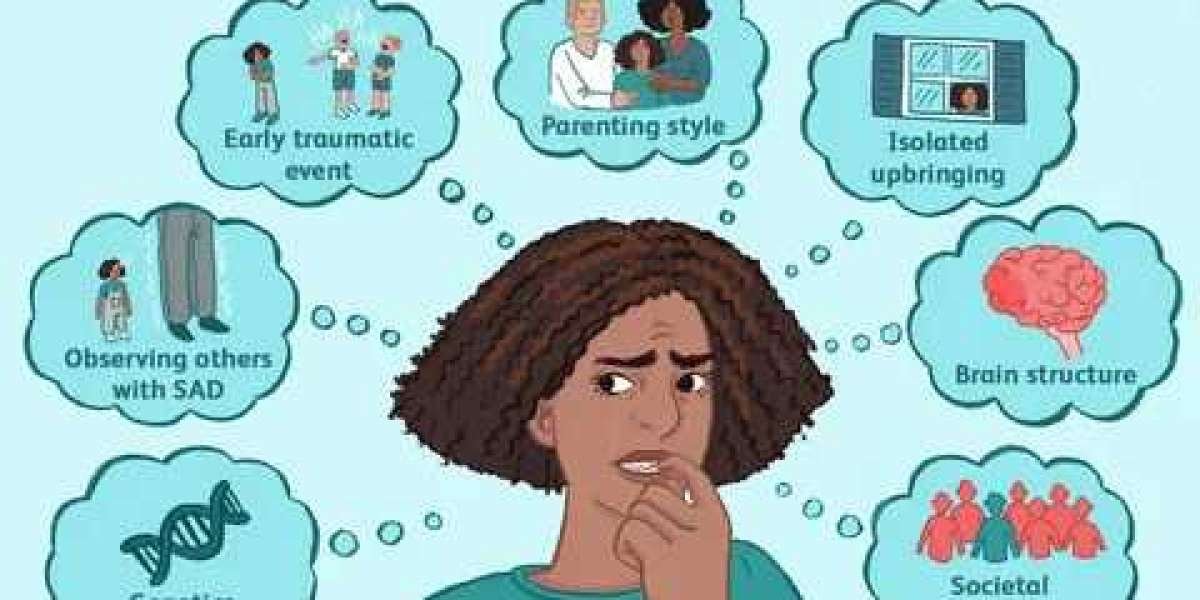Finding life's balance is essential, particularly while coping with anxiety disorders that can upset one's emotional and mental equilibrium. Integrative approaches to anxiety treatment incorporate a range of tactics and methods to support overall health and assist people in finding equilibrium while dealing with anxiety's obstacles. We'll look at the elements of integrative anxiety treatment in this post and how they affect general health.
Recognizing Unbalance and Anxiety
Anxiety disorders are frequently caused by an imbalance of some kind, whether it be in feelings, ideas, actions, or bodily reactions. Restoring harmony and advancing mental health requires addressing these interrelated areas in order to find equilibrium. The goal of integrative anxiety treatment is to develop a thorough plan that addresses both the symptoms and the underlying causes of the illness.
Integrative Anxiety Treatment's Elements
Mind-Body Link
Mindfulness Practices: People can develop an awareness of their thoughts and emotions by including body scans, deep breathing exercises, and mindfulness meditation. Reactivity to anxiety stimuli is decreased and present-moment attention is encouraged by mindfulness.
Yoga Tai Chi: These mind-body exercises combine breathing exercises with physical movement to enhance flexibility, relaxation, and stress relief. Frequent practice can strengthen resilience against anxiety and general well-being.
Cognitive-Behavioral Methods
Cognitive Restructuring: An important part of integrative anxiety treatment is recognizing and combating harmful thought processes that fuel anxiety. Anxiety can be lessened by people substituting more reasonable ideas for unreasonable ones.
Behavioral Activation: Avoidance habits typical of anxiety disorders can be countered by partaking in enjoyable and meaningful activities. Behavioral activation raises emotions of happiness and success and encourages positive reinforcement.
Changes in Lifestyle
Good Nutrition:
The brain and mood control are supported by a diet rich in fruits, vegetables, lean proteins, and omega-3 fatty acids that is well-balanced. Reducing sugar, caffeine, and processed food intake can also help with anxiety management.
Frequent Exercise:
Exercise releases endorphins, which are neurotransmitters that enhance happiness. For best results, combine strength training, cardiovascular exercise, and flexibility exercises.
Sleep hygiene is the practice of prioritizing good sleep through the creation of a calming nighttime ritual, a regular sleep schedule, and an optimal sleeping environment.
Social Assistance and Counseling
bolstering connections Having supportive networks of friends, family, or support groups helps one feel validated emotionally and gives one a sense of community. An essential component of integrative anxiety treatment is social support.
Therapeutic Interventions:
Individual therapy can offer structured support and teach coping skills for controlling anxiety. Examples of these therapies include Cognitive-Behavioral Therapy (CBT) and Acceptance and Commitment Therapy (ACT).
Keeping a Balance in Everyday Life
Practice Mindful Awareness Mindfulness:
Schedule some time each day for mindfulness exercises like mindful walking, deep breathing, or meditation. Be mindful of your feelings and ideas without passing judgment.
Remain In The Now: Instead of concentrating on regrets from the past or stressing about the future, pay attention to the here and now. Give your all in all that you do and say.
Self-Healing Practices
Set priorities. Self-Helding: Make time each day for self-care activities that feed your body, mind, and spirit. This can entail reading, watching movies, taking baths, or going outside.
Establish Boundaries: Saying no to commitments or activities that deplete your energy or put you under unnecessary stress is a skill. Establishing limits safeguards your health and frees you to concentrate on the things that really count.
Looking for Expert Assistance
Therapeutic Advice: Consult a mental health specialist with an emphasis on integrative anxiety treatment. They can create a treatment plan specifically for you and offer support and direction as needed.
Medication Management:
Work closely with your healthcare practitioner to maintain optimal dosages and track any potential side effects if medication is a part of your anxiety treatment strategy.
Sustaining Equilibrium Extended
Finding balance is a continuous effort that calls for self-awareness and consistency. With integrative anxiety treatment, patients receive a wide range of practical tools that they can use to navigate the ups and downs of life. Despite the difficulties associated with anxiety, people can find more resilience, inner peace, and fulfillment by fostering a holistic approach to well-being.
In summary
Integrative anxiety treatment aims to achieve equilibrium by balancing the mind, body, emotions, and social ties. People can manage anxiety with more resilience and well-being by combining mindfulness exercises, cognitive-behavioral therapy, lifestyle changes, social support, and therapeutic interventions. Adopting a holistic perspective encourages long-term balance and gives people the ability to live happy, satisfying lives.













